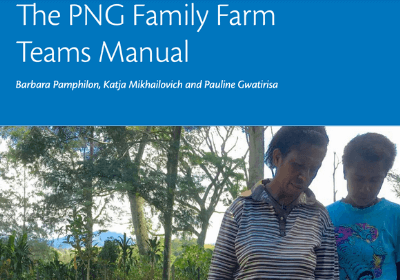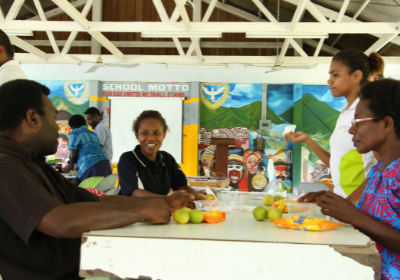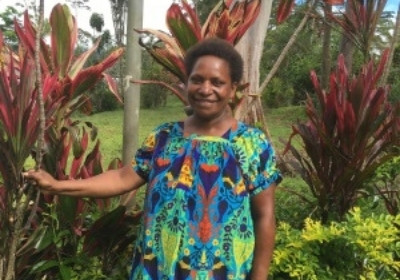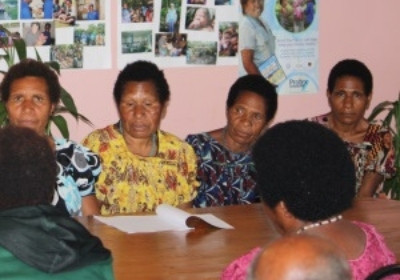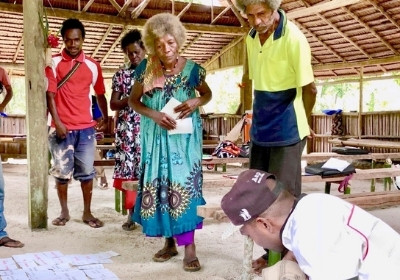Family Farm Teams Program
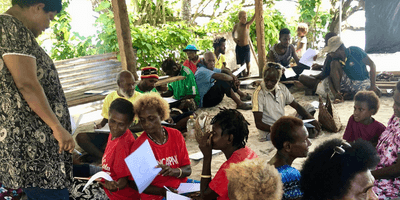
The Family Farm Teams (FFT) program supports semi-subsistence farming families in the Pacific to develop sustainable livelihoods. The program focuses on building on the individual and family agricultural and cultural strengths to enable families to work in an equitable and effective way to develop their family farm. The program was originally developed in partnership with key agencies in Papua New Guinea (PNG) through three Livelihoods and Learning for Sustainable Communities projects funded by the Australian Centre for International Agricultural Research. It is now being used across the Pacific.
Our current projects build on, adapt and scale out the original FFT approach.
Our approach to gender transformation
Current Research
Current Projects
These current projects build on, adapt and scale out the original FFT approach.

Gender Equitable Agriculture in Papua New Guinea
To help build sustainable local farm food system this gender-based project is designed to strengthen the engagement of PNG youth and women farmers in their family farm, particularly in relation to developing equitable workloads and engagement in decision-making as well as exploring ways that churches can integrate FFT in their work.
Find out more
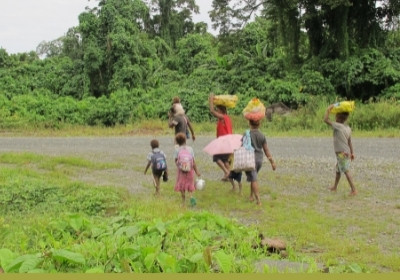
Improving Agricultural Development Opportunities for Female Smallholders in rural Solomon Islands
This project aims to facilitate opportunities for equitable and effective agricultural development for Solomon Islands female smallholder farmers and their families by trialling and adapting the FFT approach for the country and cultural context.
Find out more
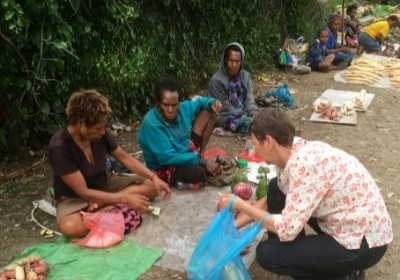
Sustaining Soil Fertility in Support of Intensification of Sweet Potato Cropping Systems, Papua New Guinea
In this project, sweet potato smallholder farmers are being introduced to soil fertility management practices that will help them to achieve improved soil management and, in turn, enable food and nutritional security for individual households. The project focuses on how to develop gender-equitable family farm teams and sustainable practices.
Find out more
Current Capacity Building
As well as developing capacity with our partners through current ACIAR projects, we are working in a number of countries to support country-specific adaptation of the FFT program. In 2021 we have worked with the PHAMA Plus teams in Fiji, Papua New Guinea, Tonga, Samoa, Solomon Islands and Vanuatu to develop their own trainers and FFT model for specific crops and agricultural opportunities. Read more about our current capacity building work on the PHAMA Plus website.
The FFT program also provides ongoing capacity building through our Family Farm Teams Facebook page .
Resources
Completed Projects
The FFT program began in 2009 with an ACIAR Small Research Activity led by Barbara Chambers, Improving women’s business acumen in PNG: working with women smallholders in horticulture. In partnership with the National Agriculture Research Institute (NARI) and the PNG Women in Agriculture Development Foundation, this project established the need to focus on training and agricultural extension that would encourage the involvement of women semi-subsistence farmers. See the final report here.
The first major ACIAR project, Examining women's business acumen in Papua New Guinea: Working with women smallholders in horticulture, was led by Barbara Pamphilon and Katja Mikhailovich in partnership with the Baptist Union of PNG, NARI and the Pacific Adventist University. This project trialled a number of ways to engage women in training and led to the development of the FFT model and the first three training modules. See the final report here.
The second major project, Improving opportunities for economic development for women smallholders in rural Papua New Guinea, was led by Barbara Pamphilon and Katja Mikhailovich, and funded by ACIAR and Australian Aid’s Pacific Women Shaping Pacific Development program. This project further developed the FFT model by out-scaling into five areas of PNG with new commodity crops and local partners. See the final report here.
For further information on the Family Farm Teams work, please contact Prof Barbara Pamphilon.
![]()
This work is licensed under a Creative Commons Attribution-NonCommercial-ShareAlike 4.0 International License.


